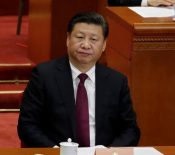India is ambitious. In order to reduce its CO2 emissions and to respond to urban air pollution issues, it announces, through the voices of its ministers of transport and energy, unprecedented green transition targets in the mobility sector: 22,5% biofuel and 100% electric vehicles by 2030. However, the measures that are supposed to ensure those ambitions seem to be weak, especially biofuels. The incorporation of biofuel ethanol, produced from sugar cane, also serves as a policy for reviving the sugar cane industry and energy independence; A program inspired by Brazil but whose example shows that it requires a coordinated industrial policy among the various sectors concerned. However, the weakness of the measures proposed by the Indian State is compounded by the difficulties of the domestic sugar cane industry and the demands of the domestic automotive industry, which is reluctant to invest in new production lines dedicated to ethanol vehicles.
The EV development program, although still unclear, looks to be better equipped politically and budgetary. However, it is not clear whether it is backed by a domestic industry development strategy or whether it is based on imports.
The green transition for countries in technological and industrial transition such as India cannot be based on the diffusion of imported technologies. Necessarily costly and requiring deep and sustained investment over the long term, it can only be sustainable if it is also the opportunity to accelerate and confirm a technological catch up that has already been well initiated in a specific field. The aim is to coordinate industrial policies with the climate and environmental objectives announced. Finally, new technologies complement one another and require, in order to be effectively deployed, a transversal, visionary industrial policy. The Indian market allows it, industry requires support but does public policy take the necessary measures?
Key points
The Indian objectives for transition to a low-carbon mobility are ambitious but for the moment the measures announced by the government to achieve them are weak.
India’s ability to achieve its objectives requires a more calibrated industrial policy.
Development
India draws inspiration from Brazil for its ambitions in biofuels
Nitin Gadkari, Minister of Road Transport and Highways, told the Indian press that the blending rate for ethanol is expected to increase to 22.5% and that for biodiesel to 15% by 2030. A transition motivated by the objective of reducing urban air pollution but also and above all supporting the sugar cane industry and strengthening India’s energy security. The Minister refers to a strategy of broad diversification of the markets of the agricultural industry towards electricity and bioplastics; Similar to the one that has proved its worth in Brazil and which is inspiring for the minister.
Indeed, in this field, the current Indian context is comparable to that of Brazil in the 1970s, when excess sugar cane production was detrimental to the economic health of the sugar sector, the ethanol-fuel sector was created to absorb these surpluses. This has helped to stabilize sugar prices and stimulate the cane sector economy but also to secure the country’s energy supply. As for India, Brazil’s oil import bill was a strong argument in the government’s decision to support such a transition. However, the strategy implemented by India to achieve these objectives differs from that of Brazil. India prohibits the use of food raw materials for energy production; Ethanol is produced from molasses, the ultimate residue in the different cane sugar production cycles, which does not allow it to serve as an economic regulator of the sector. Beyond this tactical difference, Brazil supported its program on a substantive industrial that has allowed objectives to be achieved. The measures mainly targeted the two industries providing upstream and downstream ethanol value chains: agribusiness and automotive. Through these two industries, the Brazilian government has ensured the dissemination of alternative fuel production and consumption technologies, it has financed the establishment of an alternative technological system to the conventional and dominant system of petroleum. This program is necessary for India if it wants to achieve its objectives, and which is also an opportunity of a technological disruption for a more economic and environmental competitiveness. These two industrial pillars of any agrofuel development program face challenges in India that are not yet resolved by the government’s strategy.
India’s industrial strategy questions itself,
Concerning the automotive industry, the government encourages manufacturers to produce “ethanol-compatible” models. Specifically, it is either to modify gasoline models so that they can continue to run efficiently with a fuel mix more charged with ethanol, up to 85 or 95%, or to produce models compatible with 100% ethanol fuel, such as the famous flex-fuel engine sold in Brazil.
If some industrialists follow – the Volkswagen group, which is very present in Brazil, and should manufacture the first flex-fuel models adapted to the Indian market – representatives of national manufacturers express the reluctance of domestic manufacturers. According to them, the country’s manufacturers do not have the means to invest in new production lines dedicated to flex-fuel motors, they express their fears about competition from foreign manufacturers based in Brazil, more experienced on this technology. Finally, they do not believe in the capacity of the Indian ethanol-fuel industry to produce the volumes needed to create a profitable market. The Brazilian government has twice been faced with similar reticence from car manufacturers; To convince them, in addition to an ethanol vehicle sales subsidy program, he had to commit to taking agro-industry sufficient measures to ensure production and availability at the ethanol fuel pump. Indian carmakers do not believe in the take-off of a domestic fuel ethanol industry. This industry exists but fuel ethanol prices are not attractive enough and most of the locally produced ethanol is sold to the chemical industries.









